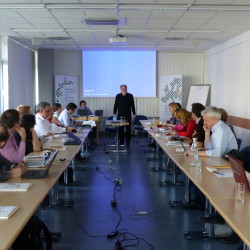News - 2015 General Election

British Election Study in the News
On the 7th May 2014, Professor Jane Green of the British Election Study team took part in a Political Studies Association media briefing in Westminster, London. Professor Green’s briefing focused upon whether UKIP’s success at the European Parliament elections in May this year would continue…

Thatcher’s Legacy Still Looms Large: The North-South divide in Britain’s electoral support
During the 1980s Britain witnessed an unprecedented geographical polarisation of voting behaviour and political attitudes. The term North-South divide became popular parlance, not just in the field of economics but also in British politics, as ‘the North’ – defined approximately by an imaginary line from…

New BES data available
New data from the British Election Study are now available. The data are based on an online sample of over 20,000 people surveyed between 20th February and 9th March 2014. More information about the first survey can be found here. The BES is one of the longest…

UKIP support in the European Parliament election set to translate to the...
The UK Independence Party tends to poll significantly better in European Parliament elections than it does in Westminster general elections. A good result for UKIP in the European Parliament elections is a blow for the three major parties, but the major parties traditionally take comfort…

Analysing Social Media Communication
Members of the BES Scientific Leadership Team participated in a workshop at the MZES, University of Mannheim, March 28-29, 2014. Twitter and Facebook are now widely used forums of social communication. Many people use them for all sorts of purposes, among them the collection of…

Analysing the Effects of Individual Level Registration: BES Partnership with the Electoral...
The British Election Study is partnering with the Electoral Commission to analyse the impact of the switch to individual electoral registration (IER) which is being rolled out from Summer 2014. The partnership will involve two streams of work. (i) Individual level analyses explaining the determinants…
